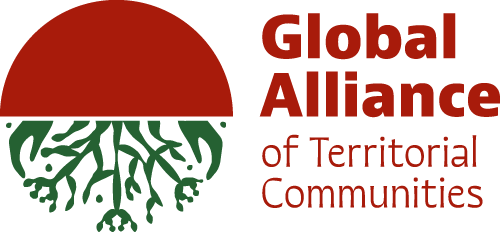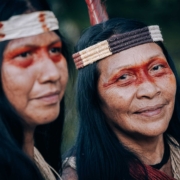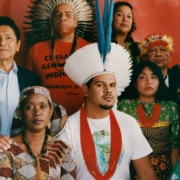The Rainforest Pharmacy: Amazonian peoples’ resilience in the face of the pandemic
This is a story of the peoples of the Ecuadorian Amazon, an account of the arrival of COVID-19 deep in the rainforest, and how communities came together and shared their knowledge to confront the pandemic and its far-reaching impacts.
Despite the unforeseen onset of the pandemic in 2020 and the devastation it caused worldwide, indigenous peoples embraced their ancestral knowledge and faced it with wisdom and in solidarity. From the initial months of the global emergency, communities throughout the Amazon resorted to ancestral knowledge through words, chants, and the experience of their elders.
The rainforest is a market, the rainforest is a pharmacy, the largest and best we have. Like the doctors who have medicine, we also have our rainforest where we have medicinal healing plants.
Nancy Guiquita
Wisdom keeper of the Waorani People
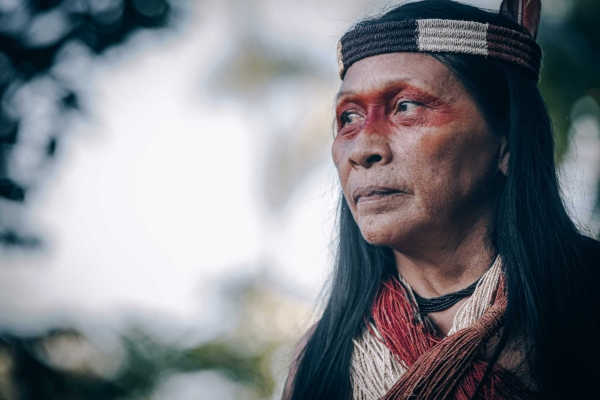
The Route of Ancestral Wisdom
Nemo Guiquita directs the Women and Health areas of the Confederation of Indigenous Nationalities of the Ecuadorian Amazon, CONFENIAE, where one of the projects carried out during the pandemic was the Health Route, a program designed to provide primary care to Amazonian communities, while also using ancestral wisdom to mitigate the coronavirus disease.
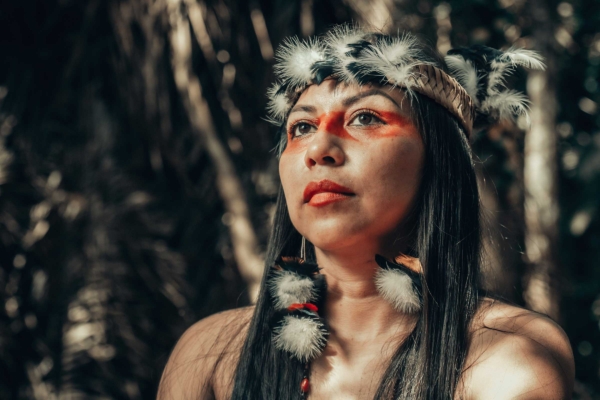
From the communities, we worked with wisdom keepers, youth and women to fight the disease. We had to turn once again to our community elders and start identifying medicinal plants, leaves, roots and stems. Our knowledge came back to life and has been a great achievement and strength for us.
Nemo Guiquita
Leader of the Waorani people
Nemo tells how at the beginning of the pandemic the roads were closed and the Ecuadorian State turned its back on them, but this abandonment resulted in an acceleration of the transmission of ancestral knowledge from the elders to the younger population. Families and entire communities went deep into the dense jungle to collect and then prepare the medicines that they used to treat the symptoms and alleviate the pain of the infected people.
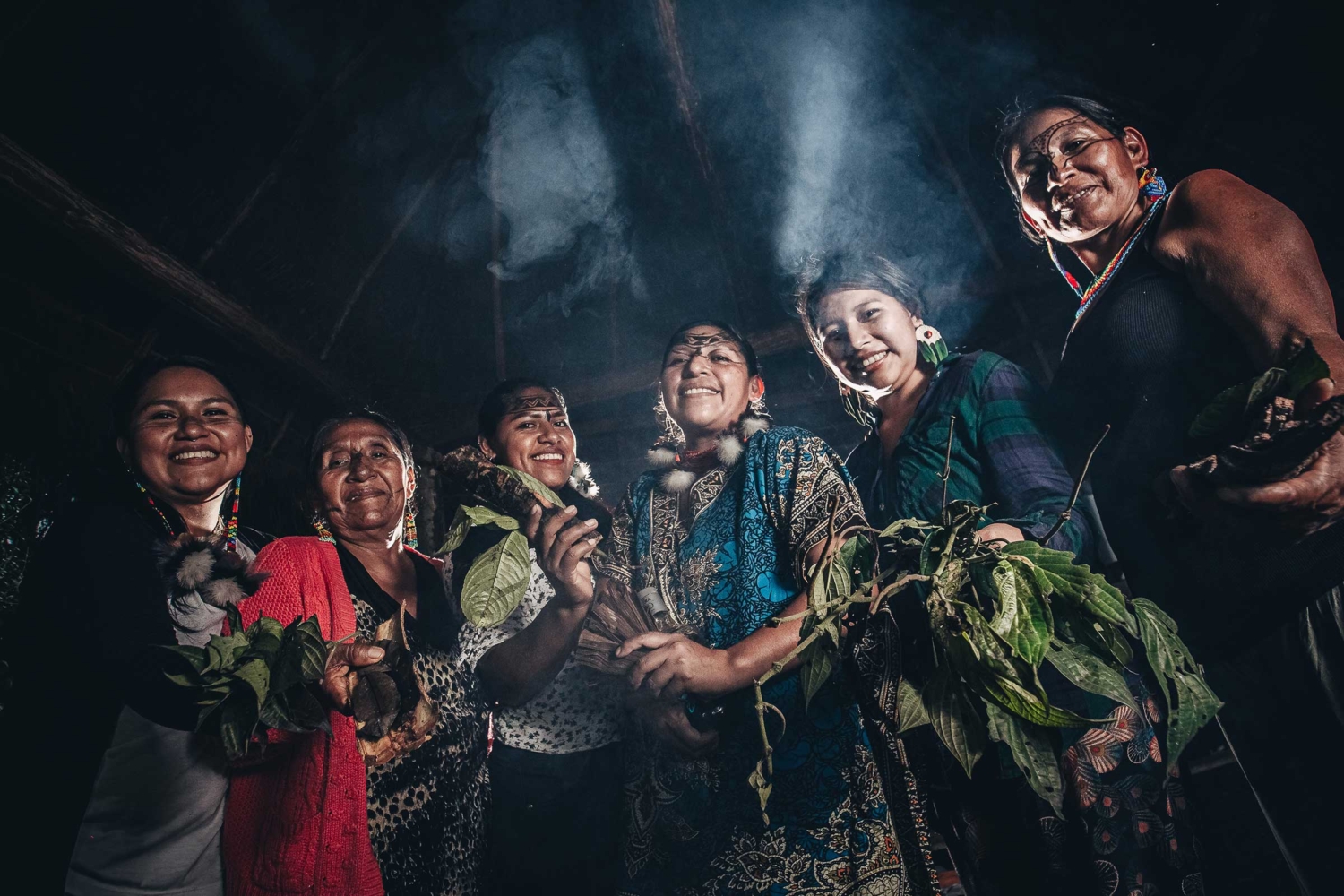
In another part of the vast Amazon rainforest, Unión Base also experienced this rebirth of ancestral knowledge. Indira Vargas, community leader of the Kichwa people, actively participated in several training processes on COVID-19 organized by CONFENIAE, and she trained as a health Promoter.
Together with a group of women from her community, Indira is part of the Awana Collective, a space for sharing ancestral practices, experiences, and care, ranging from traditional food practices, the handling of native plants and seeds, to bonfire discussions, ancestral medicines and the role of women in community development.
For as long as I can remember, I have grown up with my grandparents in the community, and in fact, my grandparents taught me a lot about the stories and about knowledge itself. As an indigenous person, my grandmother taught me how to cultivate the land, and how knowledge is connected to the chants, says Indira about her training in the use of the vast variety of Amazonian plants.
One of the things about being a Promoter was getting to know other realities, other processes led by different nationalities. We realized that the medicinal plants were the same across all nationalities, in all the communities I had the opportunity to visit in the region.
Indira Vargas
Community leader of the Kichwa people
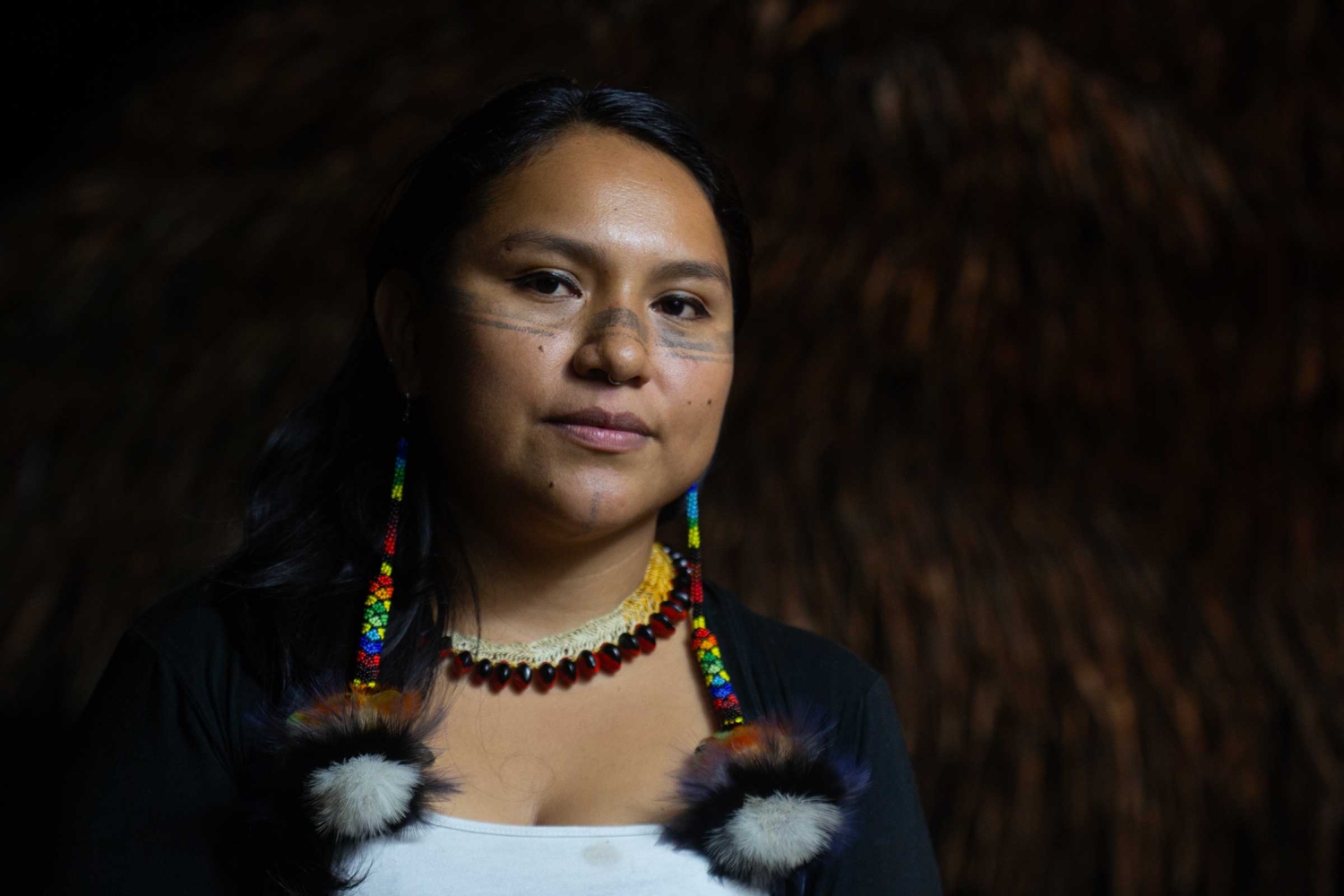
Indira talks about how the use of ancestral plants and medicines is consistent across the Amazonian communities of Ecuador, despite being from different territories, languages and peoples. This demonstrates a deep and intrinsic ancestral wisdom. Her work as a health Promoter is precisely a combination of ancestral and Western knowledge.
Both Western medicine and traditional medicine are good. Connecting the two would be a great step forward. It would be an intercultural construction: true interculturality in knowledge, Indira reflects.
This note is a preview of the series Resilience Stories, a TINTA (The Invisible Thread) project for the documentation and visibility of cases that show the adaptability, strength, and unity of people and communities in the face of COVID-19 in the territories that make up the Global Alliance of Territorial Communities in Latin America, Asia, and Africa.
